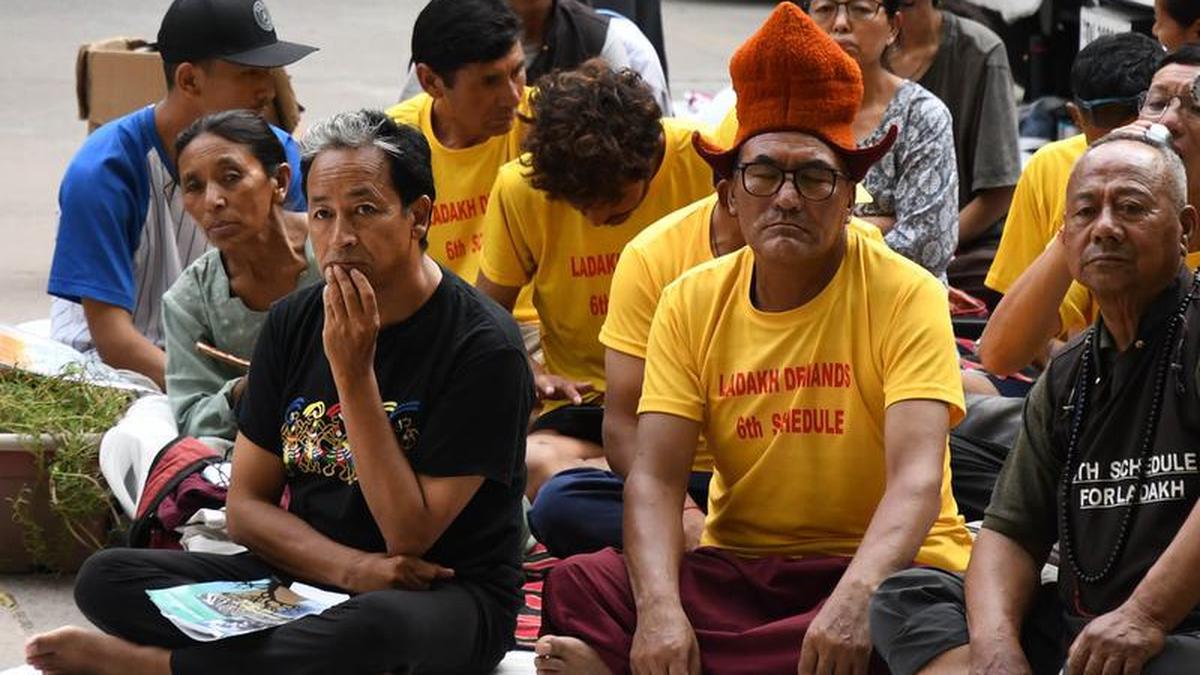
Returning to Ladakh full of hope, but battle for rights will continue, say protesters
The Hindu
Padma Stanzin and other Ladakh protesters demand inclusion in Constitution's Sixth Schedule for autonomy and employment opportunities.
Padma Stanzin, who walked with climate activist Sonam Wangchuk from Ladakh to Delhi over a month seeking the inclusion of the Union Territory in the Constitution’s Sixth Schedule, says, “We’re returning to our homes with more hope than what we started with.”
The 150 protesters, who have been camping outside the Ladakh Bhawan for nearly three weeks, are preparing to leave for their homes on Friday after the Ministry of Home Affairs agreed to talk to them about their demands in December.
“When we left Leh, all we knew was that we wanted to talk to the government and place our demands. Now that they have agreed to discuss the issues, we’re happy. However, the battle for our rights will continue,” says the 26-year-old.
Like many other young protesters in the camp, Mr. Stanzin is unemployed and worried about his prospects. He has completed his BA in Political Science and is set to finish his MA in Sociology from IGNOU’s distance education programme in December. Despite his educational qualifications, Mr. Stanzin has struggled to find stable employment, with most of the positions filled up for Class 4 employees. To make ends meet, he works part-time as a driver for Oil and Natural Gas Corporation and manages catering services. A member of the Ladakh Student Union, he has been actively involved in protests and is now preparing for the Union Public Service Commission exam.
Others are distressed over the impact of climate change on the agriculture and tourism sectors in the UT. Many of these concerns have become even more urgent, say protesters, after the special status of Jammu and Kashmir under Article 370 of the Constitution was read down by Parliament on August 5, 2019, and Ladakh became a UT without a legislature.
Mehdi Shah, 33, from Turtuk, which is located near the Line of Control, says, “We don’t have a Legislative Assembly, so there is no public representation. We are demanding safeguards under the Sixth Schedule so that we get a degree of autonomy to make our own laws and decide what to do with our natural resources.”
Mr. Shah works as a freelance educator and sometimes as a farmer to support his family. He says floods over the past few years due to melting glaciers have affected everyone’s livelihood in his hometown.

In a breathtaking display of musical prowess, the Singspirations, a Tiruchi-based choir group, in collaboration with the Glauben Ensemble and the Genesis Chamber Orchestra, presented a sublime performance of Wolfgang Amadeus Mozart’s Requiem in D minor, K. 626, in its entirety, mesmerising audiences.












